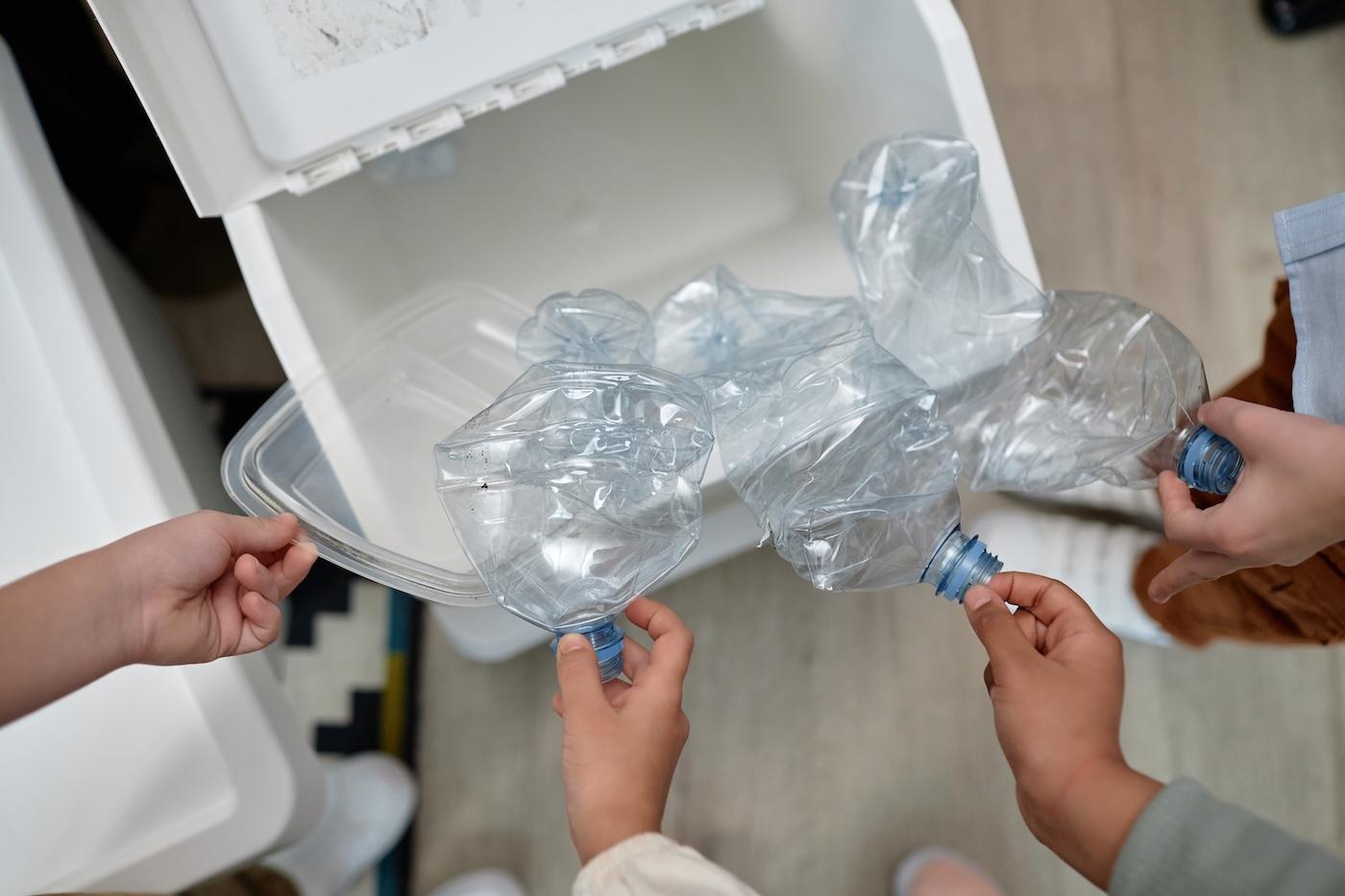PARENTS
One Dad’s Mission to Eradicate the Maternal Mortality Crisis
When Charles Johnson became a single father overnight, he promised himself he’d never stop working to protect Black birthing parents in America.

Written by
Happiest Baby Staff

Content warning: This article discusses maternal mortality.
This Father’s Day, Charles Johnson will be celebrating with his two beautiful sons Langston, age 8, and the younger Charles, nearly 10. This day will surely be filled with plenty of “I love yous,” but it’s a day forever tinged with sadness.
In 2016, Charles and his wife Kira were gearing up to become a family of four. The whole family was brimming with excitement, including their 18-month-old who was stoked to be promoted to Big Brother. “We were all ecstatic,” recalls Charles. “We planned [them close together] so that the boys could be buddies and best friends.”
When Kira delivered baby Langston via a routine cesarean section, the couple’s excitement only grew…until worry set in about two hours later. That’s when Kira’s catheter began turning pink with blood. Although Charles immediately alerted hospital staff and her bloodwork came back troubling, no action was taken. Instead, Kira lay in her hospital bed shivering, pale—and anxiously waiting. Nearly 10 hours after delivering Langston, the surgical team finally reopened Kira’s incision to discover 3.5 liters of blood in her abdomen.
“She lost about 70% of her blood volume waiting for doctors to pay attention,” says Charles. Kira coded on the operating table and never came back. Charles, a newly minted father of two, was now left to raise his boys alone.
Each year, roughly 800 women in America die from pregnancy-related complications. Black women are three times more likely to die in these situations than white women. And most of these deaths, including Kira’s, are preventable.
Once Charles learned this, it became his mission to fight back and make a difference….for Kira and all the moms. In honor of Father’s Day, Happiest Baby sat down with this inspiring dad to learn how Chares is using Kira’s legacy to change the face of maternal mortality in this country with 4Kira4Moms.
Happiest Baby: Before your horrific experience, were you aware of the disproportionate risk Black women face during pregnancy and birth?Charles Johnson: I was aware Black people did not receive equitable care in healthcare settings, but to be completely honest, I had no clue about the maternal mortality crisis and how dire things were specifically for Black women. After Kira’s death, I began to research for myself. I was shocked by what I discovered. Our country has been failing mothers for decades. How was this America's dirty little secret? Why was everyone not outraged about this crisis?
HB: What do you see as the common thread that connects the deaths of Black mothers following childbirth in America?CJ: Bias and racism. Ignoring the patient’s pleas, needs, and wishes. Being told they aren’t a priority.
Dehumanizing Black women is the basis of modern gynecology. Dozens of enslaved Black women were horrifically experimented on without anesthesia by a J. Marion Sims, a South Carolina doctor in the 19th century. History always focuses on Sims’ discoveries. He’s called the father of gynecology. However, gynecology is based on the pain and suffering of Black women. Unfortunately, this has carried over into modern medicine today!
HB: How did you go from experiencing this immense loss to creating 4Kira4Moms?CJ: Kira’s spirit has been my motivating force. Ultimately, I believe in turning pain into power.
![[object Object]](https://cdn.sanity.io/images/301lhh0a/production/8c953858ce71997eb2550fb509e39d82f2cb2e28-400x300.jpg?w=828&auto=format&q=75&fit=max)
HB: In addition to advocating for policy changes and raising public awareness, 4Kira4Moms offers support to folks during tragedy. Can you share a little bit about your Maternal Mortality Response Team?CJ: It’s a direct-response program offering resources and trauma support within 24 hours of a loss—or near-miss event—of a mother during childbirth. Our team is ready to provide grief counseling and essentials, like food, diapers, baby supplies, household items, plus legal services to families who possibly experienced loss due to medical negligence, and more for families during their infant’s first year.
HB: That’s so needed. Of course, the goal is to never get to the place where you need the Maternal Mortality Response Team. How does 4Kira4Moms help Black families prepare for a safe labor and delivery?CJ: Beyond providing education and awareness of the potential outcomes and risks regarding maternal mortality, we equip our community with knowledge. We provide toolkits and access to resources that can help improve your experience with healthcare professionals throughout the birthing journey. We let people know about services and support models for pregnancy, such as doulas and midwives.
HB: I read that you hope to eradicate the maternal mortality crisis within the next five years. How is 4Kira4Moms leading the way?CJ: Through education, advocacy, and policy/legislation, 4Kira4Moms continues to bring awareness to the epidemic plaguing our country. We are working hard to expand community engagement with our Maternal Health Block parties. We continue to raise money and resources to support those who have needlessly suffered. We will scale our Maternal Mortality Response Team and continue to provide action-based solutions, like our Health Equity Implicit Bias Training. We’ll also be introducing a new program focused on fathers called the Paternal Center of Excellence. Here we will be training—and supporting—fathers so that they can be of service and advocate for mothers and children. And, of course, 4Kira4Moms will continue our legislative efforts and support of the Momnibus and other maternal health and health equity legislation improvements.
![[object Object]](https://cdn.sanity.io/images/301lhh0a/production/e058fc912224776f7977f9e71b62aee0418d19dd-300x420.jpg?w=640&auto=format&q=75&fit=max)
HB: As someone who has testified in front of Congress numerous times about Black maternal health, how hopeful are you that things will change?CJ: I’m hopeful. My goal is that the maternal mortality crisis won’t be a thing when my sons plan for my grandchildren. 4Kira4Moms’ goal is eradication of Black maternal mortality by 2030. After all, according to the CDC, 84% of maternal deaths are preventable. We know what needs to be done. It’s simply about accountability and resources.
HB: One last question: What can the community at large do to help protect Black moms?CJ: Use your voice via voting and holding local and federal leaders accountable to make the changes and to fund the programs and organization doing the work. You can join 4Kira4Moms in the fight to eradicate Black maternal mortality by volunteering, supporting our initiatives, and of course donating, as resources are needed to deliver action in this space.
More on the Black Maternal Health Crisis:
- How This Doula Is Improving Black Maternal Health One Birth at a Time
- Learn About This Game-Changing On-Demand Advocacy App
- Why We Need Black Maternal Health Week
- Black Mamas Matter Alliance Is Clearing Obstacles to Better Black Maternal Health
Disclaimer: The information on our site is NOT medical advice for any specific person or condition. It is only meant as general information. If you have any medical questions and concerns about your child or yourself, please contact your health provider.
SHARE THIS ARTICLE
MOST LOVED
Sleepytime Sidekicks












